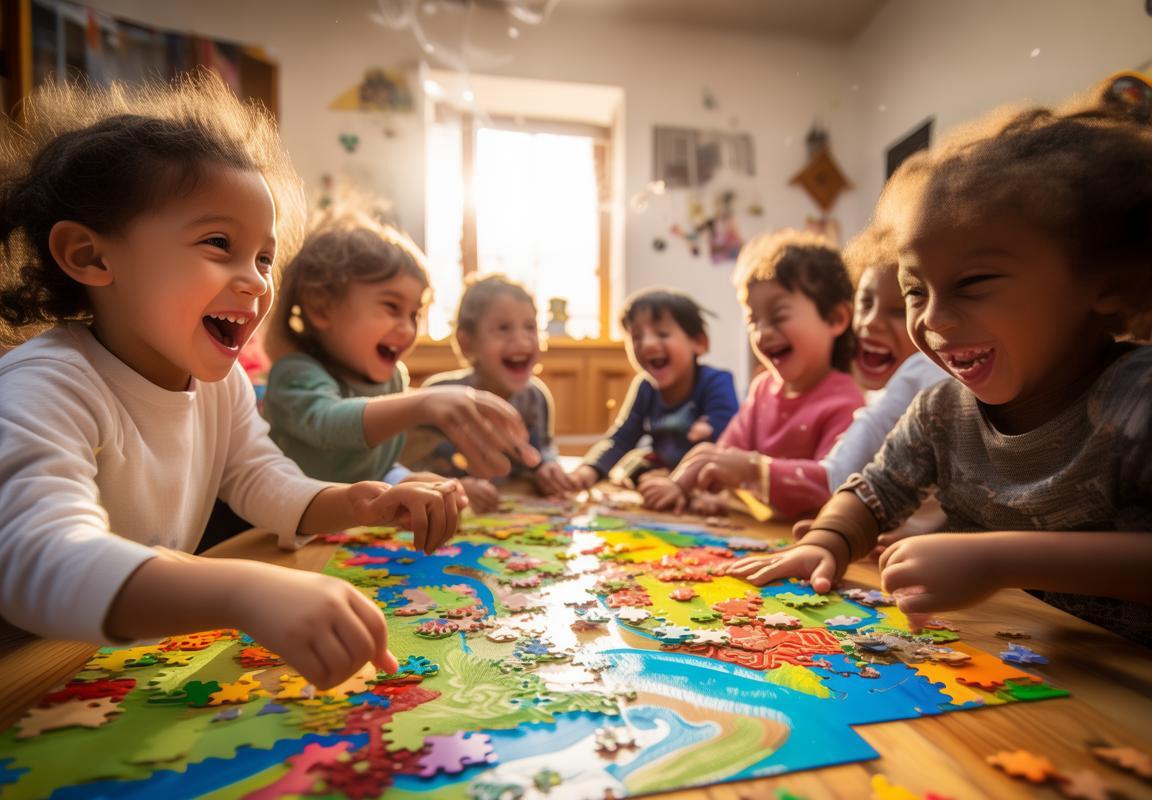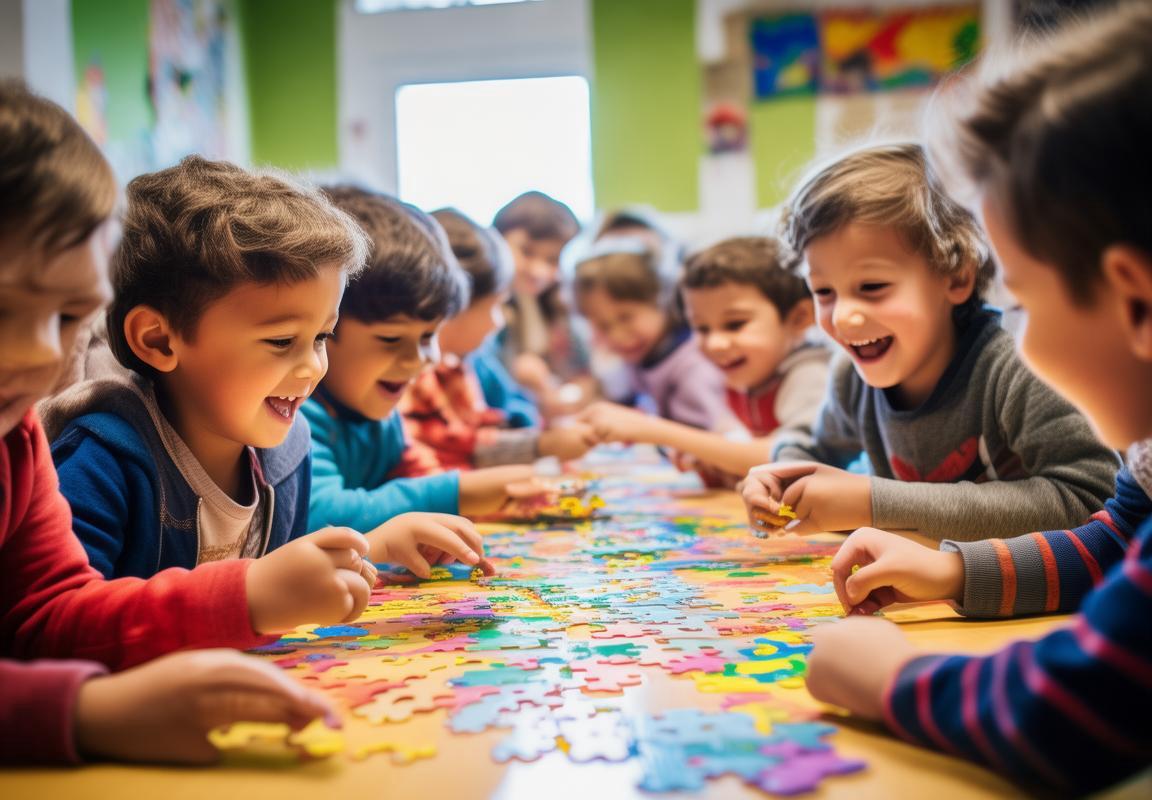In the realm of play, jigsaw puzzles offer a tapestry of discovery and development for young minds. Each colorful piece, a stepping stone to mastering patience and spatial reasoning.
Unleashing Creativity: The Joy of Jigsaw Puzzles for Kids
- “In the realm of childhood play, jigsaw puzzles offer a canvas for young minds to paint their imagination, fostering creativity with every piece that fits.”
- As children assemble colorful images, they develop fine motor skills, patience, and problem-solving abilities, all while experiencing the thrill of discovery.”
- The process of piecing together puzzles is not just about completing a picture; it’s about learning to see patterns, understand spatial relationships, and celebrate the beauty of completion.”

Interactive Learning Through Puzzle Fun
- “Jigsaw puzzles spark curiosity, encouraging children to explore shapes and patterns. They learn about symmetry and spatial awareness, enhancing their cognitive development.”
- “Engaging with puzzles fosters problem-solving skills. Kids must analyze pieces, fit them together, and think logically to complete the picture, teaching critical thinking.”
- “Collaboration comes into play as children often work together to solve puzzles. This teamwork builds communication and social skills, vital for social interaction.”
- “The tactile experience of handling puzzle pieces helps develop fine motor skills. Children learn to manipulate objects, an essential part of their physical growth.”
- “Puzzles offer a sense of accomplishment. As kids complete a puzzle, they experience pride and satisfaction, reinforcing positive self-esteem and a sense of achievement.”
- “Educational puzzles can be themed to teach specific subjects like history, science, or animals. They turn learning into an enjoyable and memorable experience.”
- “The process of piecing together a puzzle is calming and meditative. It helps children relax and focus, teaching them to concentrate on tasks at hand.”
- “Interactive puzzles with moving parts or hidden elements add a layer of excitement, making learning fun and engaging for young minds.”
- “Regular puzzle play can boost memory and retention. Children learn to recall details and patterns, improving their memory capacity over time.”
- “Jigsaw puzzles are a versatile tool for parents and educators. They adapt to different skill levels and can be used to challenge and motivate children.”

Building Skills with Every Piece: A Puzzle Kids Adventure
- “As children piece together jigsaw puzzles, their spatial awareness sharpens, a crucial skill for future learning.”
- “The act of fitting shapes together teaches patience and problem-solving, essential life skills that puzzles nurture in young minds.”
- “Engaging with puzzles fosters concentration and focus, helping kids to stay on task and develop a keen eye for detail.”
- “Collaborating on puzzles with siblings or friends encourages teamwork and communication, building social skills from an early age.”
- “Sorting and organizing puzzle pieces enhances fine motor skills, crucial for tasks like writing and buttoning clothes.”
- “Completing puzzles often leads to a sense of accomplishment, boosting self-esteem and confidence in young children.”
- “Exploring different themes in puzzles sparks curiosity and a love for learning, as kids discover new facts and concepts.”
- “The process of solving puzzles helps children understand patterns and sequences, laying the groundwork for math and science understanding.”
- “Jigsaw puzzles offer a quiet, soothing activity that can be a great stress reliever for kids, teaching them to relax and enjoy the moment.”
- “The variety of puzzles available caters to different ages and interests, ensuring that every child can find a challenge that suits them.”